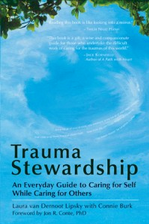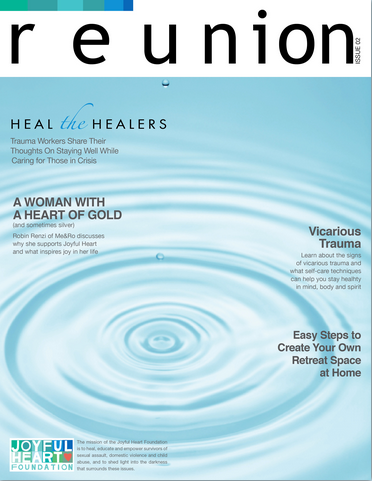You can leave this site quickly.
Learn more about Internet safety.
Related Terms and Definitions
Vicarious trauma is often an umbrella term to various responses by those who work fields involving trauma. There are related terms, which can overlap but also have unique characteristics. It can be helpful to understand the different terms to identify your own personal experiences or the experiences of someone you care about.
Vicarious trauma is often defined as a change in a person’s inner experience or the cumulative effect of bearing witness to the suffering of others on a person. At times, this can result in experiencing similar distressing thoughts, feelings, or somatic experiences related to traumatic exposure as those of the people we are serving. Intrusive thoughts and images or avoidance of situations that are related to trauma or the workplace are some common examples.
Compassion fatigue and secondary traumatic stress
Compassion fatigue and secondary traumatic stress is the decreased ability to respond to the suffering of others with empathy. It consists of the feeling of having nothing left to give. It makes it difficult to find the compassion necessary to serve people. If professionals continually offer support and compassion to others—but are not able to take of themselves—they can feel depleted of inner resources. Compassion fatigue can drain energy, vitality, and optimism.
Burnout
Burnout can occur when stressful working conditions leave healers with feelings of frustration and powerlessness. It occurs when demands placed on an individual exceeds available resources. Burnout can make a person more vulnerable to vicarious trauma and compassion fatigue.
Trauma exposure response
Trauma exposure response is a general term on the changes that take place as a result of consistent work and/or encounters with trauma.
Trauma mastery
Trauma mastery is healing from trauma by re-visiting it or recreating situations with the hope of a different outcome. Healers who have experienced a personal trauma may feel the need to support others as a way of contributing to more positive outcomes than what they experienced. Although this can be a constructive way of mastering a personal trauma, it cannot substitute one’s own recovery process.





